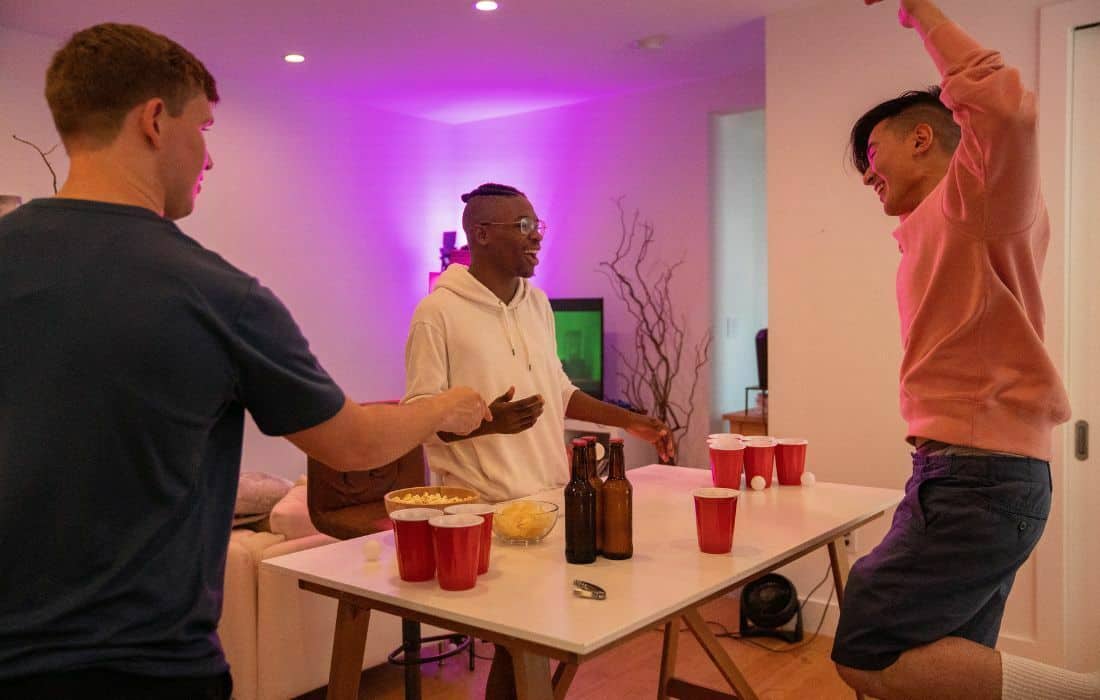You may be asking what additional measures you can take to reduce your alcohol Consumption if it has occurred to you that you are drinking too much and that cutting down or stopping is not as simple as you imagined it would be. Most people—including some medical professionals—think abstinence is the only solution. But studies in medicine have shown that not everyone should quit cold turkey.
How to Take Control of Your Drinking
For diverse forms of addiction and different persons, different strategies are effective. Even an occasional glass of wine for them might relapse into heavy drinking. If you identify as that kind of drinker, you must limit your alcohol exposure. Moderate drinking may help some individuals reduce alcohol addiction-related behaviors.
According to research, regulated drinking is feasible for many people and typical among those who used to drink excessively. Many individuals reduce their alcohol Consumption without seeking medical or therapy assistance. The guidance and support of a counselor who has received training in helping those with drug use disorders and addiction may also be helpful.
How to Reduce Drinking
There are alternative solutions if you decide that abstaining from alcohol altogether is not for you. Some individuals may manage their drinking without quitting and consume alcohol in lower amounts. You should take various actions to help you manage your drinking if you intend to try.
Decide on a drinking target.
Check whether you qualify for regulated drinking before considering reducing your alcohol consumption. Based on what is ideal for your long-term health, what is feasible for you, your family, and your friends, as well as other parts of your lifestyle, you should set a drinking target.
If you decide to stop drinking entirely, see a doctor or an addiction specialist and receive support to stop drinking and remain clean.

Depending on how much you’ve been drinking lately, quitting cold turkey may not even be safe or practical. Your doctor may recommend drugs or send you to a treatment program instead.
This is not a cause for shame. Remember that despite best efforts, persons who battle alcohol Consumption disorder may not always be able to regulate their alcohol use and want to minimize or moderate it.
Alcohol-Controlling Objectives
If you qualify for regulated drinking, consider your objective and put it in writing. Several potential goals are:
- On weekends, I simply want to drink.
- I aim to reduce my consumption overall to a healthy level.
- I want to be able to consume alcohol at gatherings like parties without becoming wasted.
- Analyze your current alcohol consumption
For a week, record your drinking.
The simplest drinking diaries just note how much you consume each day, but the more information you can collect, the more you’ll understand your personal drinking habits and be able to manage them. Write down your drink total, where you were, and who you were with every evening (or the morning after if you forgot).
Additionally, note any unfavorable outcomes or circumstances that you want to avoid in the future. For instance, “I got into a fight with Ben after my third drink.” You’ll have a decent notion of when, when, and with whom your drinking tends to become excessive or troublesome from this.

The maximum quantity of alcohol Consumption in a single drinking session is determined by your blood alcohol content. To find your own safe limit, you will need expert advice.
Write down the number of drinks you can have together with the time frame for drinking when you have determined your limit.
Buy alcohol in little, controlled amounts.
The simplest way to ruin your plans to drink sensibly is to stock up on wine, beer, and booze. To drink at home, remember these suggestions:
Don’t drink strong liquor. One strategy to consume less alcohol is to substitute less potent beverages like beer or wine for vodka.
Make just a few purchases. Only purchase the number of alcoholic beverages necessary to stay within your safe alcohol limit. Purchase individual wine bottles, cans, or half-size bottles as needed.
Drink only after substantial meals. This will lessen the impact of drinking alcohol and the desire to consume it excessively.

Maintain a strict routine. Only consume the stated quantity of alcohol at the designated rate. Drink water or drinks with little or no alcohol if you wish to consume additional liquids in between.
Consider low- or no-alcohol choices. If you anticipate drinking more wine or beer but not more alcohol, buy the same quantity of alcohol-free or low-alcohol beverages.
Recognize peer pressure
Check your drinking history. Try to avoid anybody who encourages you to consume excessive amounts of alcohol. Start looking for new friends or relatives that don’t drink as much if you feel social pressure to drink all the time.
Plan your return trip.
Driving is not advised when intoxicated, even at a reasonable level. Plan a sober driver to bring you home, or reserve a taxi or ride-sharing service in advance. Plan your public transportation trip home if that is too expensive. So that you won’t be tempted to use your car, leave it at home.
Learn About Healthy Options
If drinking has played a significant role in your social life, it may be time to look into new pursuits and interests that don’t require alcohol and emphasize self-care. Take a stroll. Try meditation, yoga, or tai chi. Watch a movie while curled up next to a special someone. Join or start a book club. Take up photography or sketching. Take a different kind of workout class.
Ask for Assistance
If you’re unsure whether a moderation- or abstinence-based strategy is best for you, speak with your family physician or an addiction counselor.

A program or support group may assist you in adjusting to your new lifestyle if you and your partner determine that moderation is the best objective. Medications are another option for folks who wish to reduce their drinking.
Work together to establish tactics for regulating your alcohol Consumption, drinking responsibly, or stopping altogether. Ask your doctor or counselor for a recommendation.


